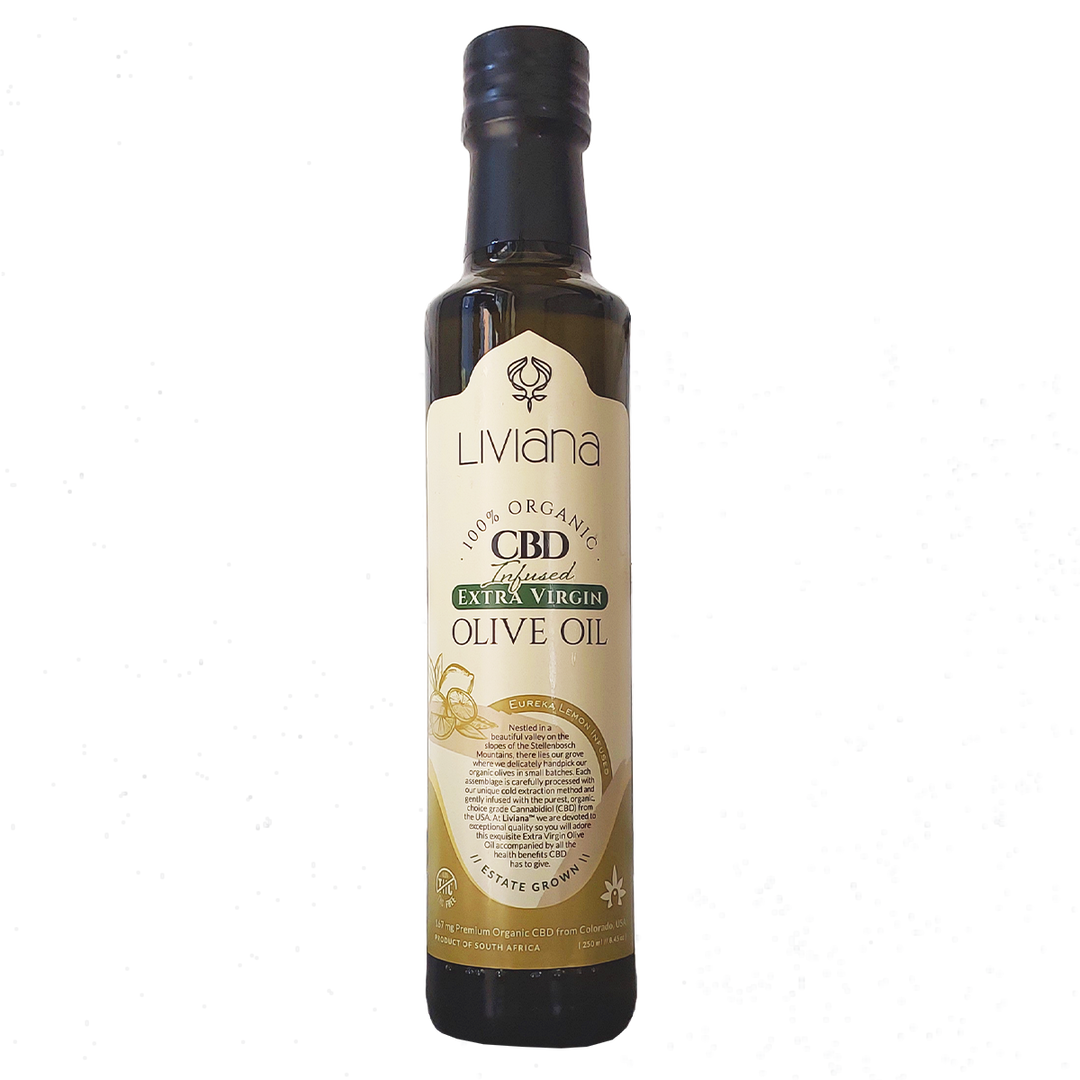The Mediterranean Diet (MD), marked by high consumption of extra virgin olive oil, fruits, vegetables, legumes, nuts, and seeds, is considered one of the healthiest dietary patterns. Studies show it provides protection against heart disease, obesity, diabetes, certain cancers, cognitive decline, and kidney disease. Its health benefits result not only from the nutrients in the food, but also from cooking techniques, eating behaviors, lifestyle, and sociocultural aspects.

In recent years we have wizened up to the fact that we should not be focusing on single nutrients or foods, but rather on overall high-quality food patterns. Food patterns involve the amounts, proportions, combinations, and variety of different foods and beverages, and how often they are usually consumed.
This allows for synergistic interactions between foods and nutrients.¹ The Mediterranean Diet (MD) is considered to be one of the healthiest dietary patterns in the world, thanks to the combination of foods that are rich in antioxidants and offer anti-inflammatory effects.²
The MD refers to the traditional dietary pattern of people in Greece, Southern Italy, Spain, and other olive-growing countries of the Mediterranean basin.
In general, it is a frugal diet with the following characteristics:¹ ³
Generous amounts of extra virgin olive oil (EVOO) as the main culinary fat – this is a crucial component!
- High amounts of plant-derived foods: fruit, vegetables, legumes, nuts, seeds, whole-grain cereals
- Frequent, but moderate intake of wine (especially red wine), usually with food
- Moderate consumption of seafood and dairy products, especially yoghurt and cheese Poultry and eggs
- Low consumption of sweet desserts, red and processed meats.
These factors, including crucial sociocultural aspects, make it different from other dietary patterns.³

“The MD could be considered the most studied and well-known dietary pattern in the world.³ It has been shown to have a protective effect on the incidence of heart disease, obesity, type 2 diabetes, certain cancers, cognitive decline, Alzheimer’s disease, respiratory diseases, and osteoarthritis.”
Polyphenols and phytosterols are bioactive compounds that are thought to offer health benefits and are found in EVOO, fruit, vegetables, nuts, coffee, and red wine, which form part of this eating pattern.⁴
EVOO is a unique source of dietary fat, consisting mainly of monounsaturated fatty acids and polyphenols.⁵ Using generous amounts of EVOO also assists with increasing the palatability of cooked vegetables, salads, and legumes, subsequently increasing their consumption.³
The health benefits of the MD extend beyond the nutrients in the food. It is the dietary pattern as a whole, the combination of nutrients in the food, cooking techniques, eating behaviour as well as lifestyle.
It is associated with improved quality of life and healthy aging.³ ⁶ The MD has also been shown to assist with weight loss in the long-term and offers greater weight loss compared to a low-fat diet, and is comparable to a low carbohydrate diet or the American Diabetes Association diet.⁷ The MD has even been shown to prevent the development of chronic kidney disease (CKD), as well as slow the progression of CKD. The legumes, nuts, and vegetables that form part of the MD are particularly important for CKD.⁸ Furthermore, data from over 60 000 people has demonstrated that higher adherence to the MD is associated with a lower risk of incident all-cause dementia. In fact, those who had the highest level of adherence had a 23% lower risk of developing dementia compared to those with the lowest level of adherence.⁹
The PREDIMED (PREvención con DIeta MEDiterránea) trial is one of the largest randomised controlled trials that has been conducted using the MD and assessed the long-term effects of the MD on cardiovascular clinical events (heart attack, stroke, or death). Participants followed a MD supplemented with EVOO, or nuts, or they followed a low-fat diet, which served as the control. There was no restriction of energy or special alteration of physical activity, and the study lasted around 5 years. This study showed that the MD is sustainable and effective in preventing cardiovascular disease and clinical events.¹ The MD may contribute to reducing the onset of cancer as the foods included in this dietary pattern offers antioxidant and anti-inflammatory properties that prevent and counteracts damage to the DNA. This slows down the development of various forms of cancer and prevents cell proliferation.²
The mechanisms behind the MD preventing various conditions include the following:¹ ³
- Reduces blood pressure
- Increases insulin sensitivity
- Improves lipid profiles
- Reduces inflammation and platelet aggregation
- Reduces oxidative stress
- Reduces carotid atherosclerosis
- Facilitates gut microbiota-mediated production of substances that influence metabolic health
- Modifies hormones and growth factors involved in the development of cancer
With all of this evidence, it is a wonder that we aren’t all following this eating pattern! Look out for the next article, where we will discuss how to eat like a Greek God by unveiling the components of the Mediterranean Diet. Remember, it is about your lifestyle as a whole that makes this eating pattern work, so take some time to reflect on where you can potentially work on improving your habits and behaviours.

For more information on the study, refer to the reference below.
SO, WHAT IS THE TAKE AWAY MESSAGE?
The Mediterranean Diet (MD), characterized by a combination of antioxidant-rich foods and anti-inflammatory effects, stands out as one of the healthiest dietary patterns globally. Focusing on overall high-quality food patterns, the MD includes generous amounts of extra virgin olive oil (EVOO), plant-derived foods, moderate wine consumption, and limited intake of certain foods. Beyond nutrients, the MD’s health benefits stem from a holistic approach, encompassing cooking techniques, eating behavior, lifestyle, and sociocultural aspects. Extensive research indicates the MD’s protective effects against various health conditions, including heart disease, obesity, diabetes, cancer, cognitive decline, and chronic kidney disease. The PREDIMED trial demonstrates its sustainability and effectiveness in preventing cardiovascular disease, while its mechanisms involve positive impacts on blood pressure, insulin sensitivity, lipid profiles, inflammation reduction, and more.
CONCLUSION
The Mediterranean Diet emerges as a comprehensive and well-studied dietary pattern with remarkable health benefits. Its impact extends beyond individual nutrients, encompassing a holistic approach to nutrition, cooking, and lifestyle. The MD’s effectiveness in preventing a range of conditions, supported by extensive research and the PREDIMED trial, underscores its significance for overall health. As we explore the components of the Mediterranean Diet in the next article, it is evident that adopting this eating pattern requires a holistic commitment to lifestyle improvements. The wealth of evidence presented makes a compelling case for considering the Mediterranean Diet as a sustainable and health-promoting dietary choice.
REFERENCES
- Martínez-González MA, Salas-Salvadó J, Estruch R, et al. 2015. Benefits of the Mediterranean diet: Insights from the PREDIMED study. Progress in Cardiovascular Diseases, 58: 50-60. Available here.
- Mentella MC, Scaldaferri F, Ricci C, et al. 2019. Cancer and Mediterranean diet: A review. Nutrients, 11(2059). Available here.
- Serra-Majem L, Roman-Vinas B, Sanchez-Villegas A, et al. 2019. Benefits of the Mediterranean diet: Epidemiological and molecular aspects. Molecular Aspects of Medicine, 67: 1-55. Available here.
- Davis C, Bryan J, Hodgson J, et al. 2015. Definition of the Mediterranean diet: A literature review. Nutrients, 7:9139-9153. Available here.
- Yubero-Serrano EM, Lopez-Moreno J, Gomez-Delgado F, et al. 2019. Extra virgin olive oil: More than a healthy fat. European Journal of Clinical Nutrition, 72(Suppl 1):8-17. Available here.
- Tosti V, Bertozzi B & Fontana L. 2018. Health benefits of the Mediterranean diet: Metabolic and molecular mechanisms. Journals of Gerontology: Biological Sciences, 37(3):318-326. Available here.
- Mancini JG, Filion KB, Atallah R, et al. 2016. Systematic review of the Mediterranean diet for long-term weight loss. The American Journal of Medicine, 129:407-415. Available here.
- Caldiroli L, Molinari P, Abinti M, et al. 2022. Can Mediterranean diet have a positive impact on kidney health? A pending answer to a long-time question. Nutrients, 14(4366). Available here.
- Shannon OM, Ranson JM, Gregory S, et al. 2023. Mediterranean diet adherence is associated with lower dementia risk, independent of genetic predisposition: findings from the UK Biobank prospective cohort study. BMC Medicine, 21(81). Available here.

Nicola Royce
Registered Dietitian,
Postgraduate Diploma Diabetes,
Masters in Nutrition



